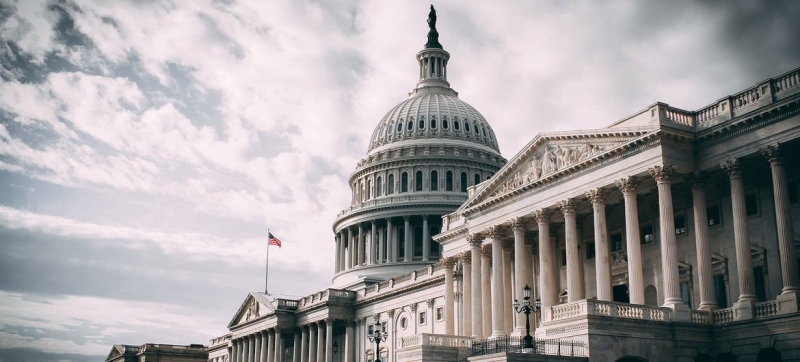
Capitol building in Washington. UN experts call on the US to remove Cuba from the list of countries that sponsor terrorism and lift the embargo International Law
Independent UN experts have called on the United States to remove Cuba from its list of state sponsors of terrorism, which they say is necessary in the context of the country’s protracted economic and humanitarian problems.
Inclusion in the “black list”
“We are deeply concerned that, since 2021, the US Government has re-designated Cuba as a State sponsor of terrorism. The extension of the related restrictions has reportedly deepened the country’s 62-year-long international isolation resulting from the US embargo,” said a joint statement by the Special Rapporteur on the negative impact of unilateral coercive measures on the enjoyment of human rights, Aliona Douhan, the Independent Expert on human rights and international solidarity, Cecilia M. Baye, and the Independent Expert on the promotion of a democratic and equitable international order, George Katrougalos.
They noted that the US measures include a number of additional economic and financial restrictions with negative consequences for Cuba, whose government is unable to effectively assist its population in the face of serious economic problems.
Additional Restrictions
This includes additional trade restrictions, the suspension of financial and technical assistance from the U.S. government, active opposition by the United States to loans to Cuba by international financial institutions, and potential threats to stop support from other countries.
According to experts, this has exacerbated the problems that the Cuban people have been facing over the past several years, including the COVID-19 pandemic, natural disasters, and economic and financial difficulties.
Negative Impacts
“Fear and uncertainty” are growing among States, businesses and other stakeholders wishing to maintain or develop trade or other relations with Cuba, with serious consequences, including for humanitarian and development assistance, as well as the availability of essential goods such as food and medicine, the advocates added.
Inflation has compounded food shortages, they said, while agricultural production has declined due to fuel shortages and restrictions on imports of agricultural machinery, chemicals, animal feed and spare parts.
Likewise, Cuba’s status has further complicated licensing procedures for drugs and medical equipment, experts added. This is gradually leading to serious shortages in this area and undermining the functioning of the health system, including the treatment of cardiovascular diseases, cancer and obstetric services.
Lift the restrictions
The US government should end the restrictions imposed on Cuba as a result of the long-standing embargo and the country’s recent re-designation as a state sponsor of terrorism, the experts said.
The unilateral inclusion of Cuba in the list is contrary to the fundamental principles of international law, including the principle of the sovereign equality of states, non-interference in the internal affairs and the peaceful settlement of international disputes, they stressed.
The experts cited UN resolutions highlighting the negative humanitarian consequences of unilateral coercive measures, and broad international support for lifting the embargo against Cuba in their call on the United States government to fully comply with all of its international human rights obligations, including extraterritorially, and to take immediate action. They have already shared their concerns with the US government.
Read also:
UN General Assembly calls on US for 31st time to lift sanctions against Cuba
Special rapporteurs, independent experts, and working groups are part of what is known as the Special Procedures of the Human Rights Council. Special Procedures experts serve on a pro bono basis; they are not UN staff and do not receive a salary for their work.
